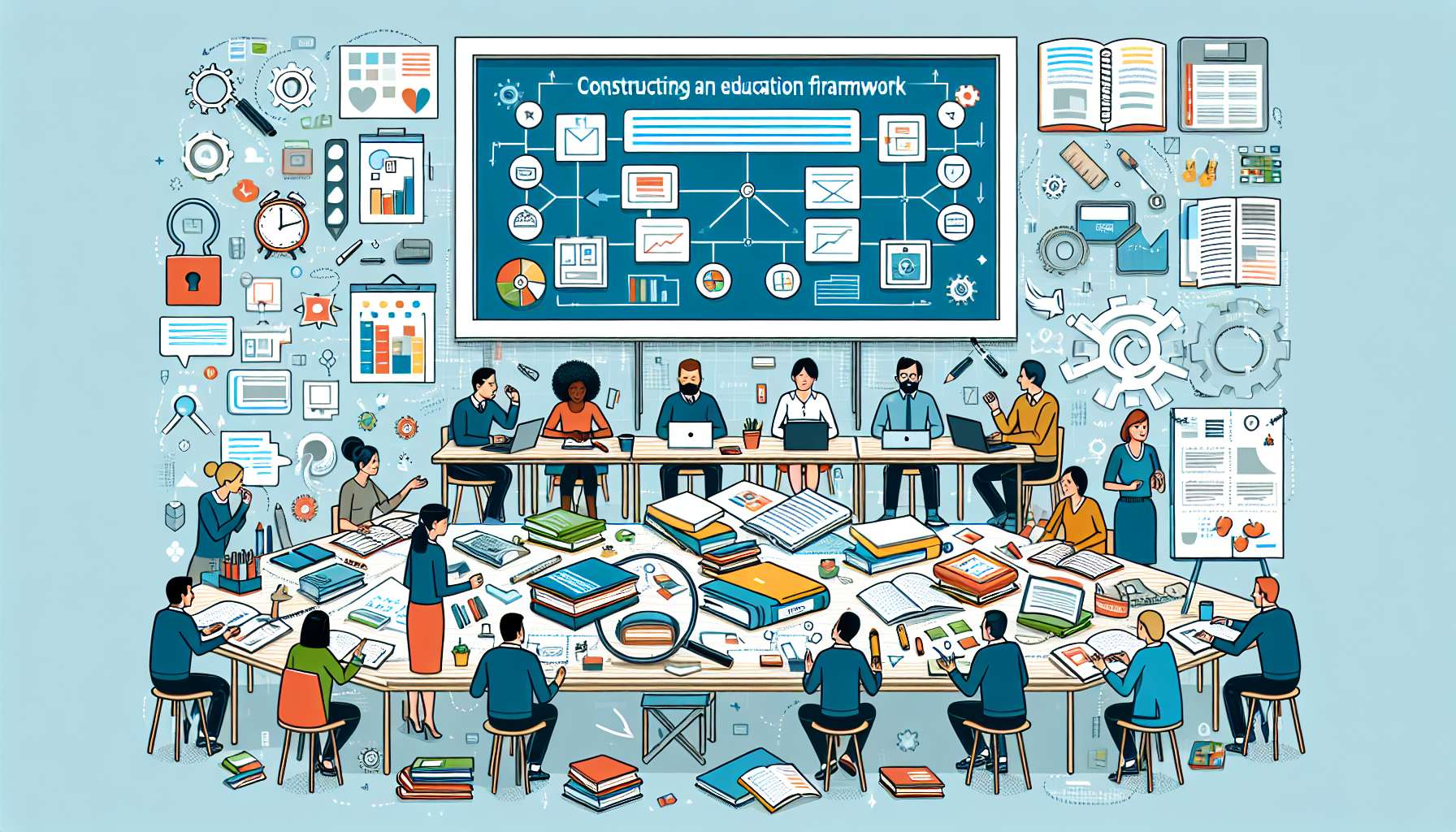Unlocking the Power of Core Learning Essentials Guide
Education is a transformative force that has the power to shape minds, ignite curiosity, and change lives. In the realm of learning, understanding the core essentials is crucial to building a strong foundation for knowledge acquisition and skill development. The Core Learning Essentials Guide serves as a roadmap to navigate the vast landscape of education, providing key principles, strategies, and techniques to enhance the learning experience. In this comprehensive guide, we will delve deep into the intricacies of the Core Learning Essentials Guide, exploring its significance, applications, and impact on the educational landscape.
The Fundamentals of Core Learning Essentials
At the heart of the Core Learning Essentials Guide lies a set of fundamental principles that underpin effective learning. These principles are designed to optimize the learning process, foster critical thinking skills, and promote lifelong learning. By focusing on essential concepts such as active engagement, mastery of core content, and metacognitive strategies, educators can create a conducive environment for students to thrive and succeed.
One of the key tenets of core learning essentials is the concept of active engagement. This principle emphasizes the importance of hands-on learning experiences, interactive activities, and collaborative projects that encourage students to actively participate in the learning process. By engaging students in meaningful and relevant tasks, educators can enhance student motivation, retention, and understanding of key concepts.
Another critical aspect of core learning essentials is the mastery of core content. This principle highlights the significance of deep learning, where students develop a thorough understanding of foundational concepts before moving on to more complex topics. By ensuring that students have a solid grasp of core content, educators can build a strong knowledge base that supports further learning and skill development.

The Role of Metacognitive Strategies
In addition to active engagement and mastery of core content, metacognitive strategies play a vital role in the Core Learning Essentials Guide. Metacognition refers to the ability to monitor, regulate, and evaluate one’s own learning processes. By teaching students how to develop metacognitive skills such as goal setting, self-assessment, and reflection, educators can empower students to become independent and strategic learners.
Metacognitive strategies enable students to take control of their own learning, identify areas for improvement, and make informed decisions about their learning goals. By incorporating metacognitive practices into the curriculum, educators can help students develop essential skills such as problem-solving, critical thinking, and self-regulation, which are crucial for academic success and lifelong learning.
Implementing Core Learning Essentials in the Classroom
Bringing the principles of core learning essentials into the classroom requires a thoughtful and intentional approach. Educators can incorporate these principles into their teaching practices through a variety of strategies and techniques that cater to diverse learning styles and preferences.
One effective way to implement core learning essentials is through project-based learning, where students work collaboratively on real-world projects that integrate core content with practical skills. By engaging in hands-on projects, students can apply their knowledge in meaningful contexts, develop problem-solving skills, and enhance their creative thinking abilities.
Another approach to implementing core learning essentials is through the use of technology-enhanced learning tools and resources. By leveraging digital platforms, online resources, and interactive multimedia, educators can create engaging and interactive learning experiences that cater to the diverse needs of students. Technology can be a powerful tool to enhance student engagement, facilitate personalized learning, and support the mastery of core content.
The Future of Core Learning Essentials
As the landscape of education continues to evolve, the Core Learning Essentials Guide will play an increasingly important role in shaping the future of learning. By equipping students with essential skills such as critical thinking, problem-solving, and collaboration, educators can prepare them for the challenges and opportunities of the 21st century.
Furthermore, the integration of core learning essentials into educational policies, curriculum frameworks, and teaching practices can help create a more equitable and inclusive learning environment. By prioritizing core essentials such as active engagement, mastery of core content, and metacognitive strategies, educators can ensure that all students have the opportunity to succeed and thrive in a rapidly changing world.
Expert Opinions on Core Learning Essentials
Experts in the field of education have recognized the importance of core learning essentials in promoting student success and academic achievement. According to Dr. John Hattie, an influential education researcher, “Focusing on core essentials such as active engagement, mastery of core content, and metacognitive strategies can have a significant impact on student learning outcomes and academic performance.”
Similarly, Dr. Carol Dweck, a renowned psychologist and author, emphasizes the importance of cultivating a growth mindset in students through core learning essentials. She states, “By teaching students to embrace challenges, persist in the face of obstacles, and view failure as a learning opportunity, educators can help students develop essential skills for success in school and beyond.”
Conclusion: Empowering Students Through Core Learning Essentials
In conclusion, the Core Learning Essentials Guide serves as a valuable resource for educators, policymakers, and stakeholders in the field of education. By prioritizing core essentials such as active engagement, mastery of core content, and metacognitive strategies, educators can create a dynamic and student-centered learning environment that fosters academic success, personal growth, and lifelong learning.
As we look to the future of education, it is essential to recognize the transformative power of core learning essentials in shaping the minds and hearts of the next generation. By embracing these principles and integrating them into our teaching practices, we can empower students to reach their full potential, overcome challenges, and make meaningful contributions to society. The journey of learning begins with the core essentials let us unlock the power within each student and nurture a generation of lifelong learners.




